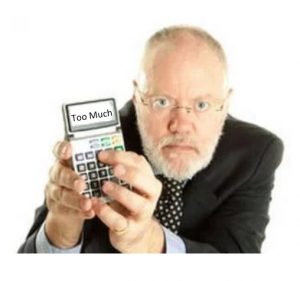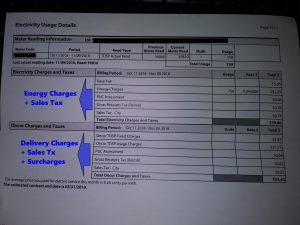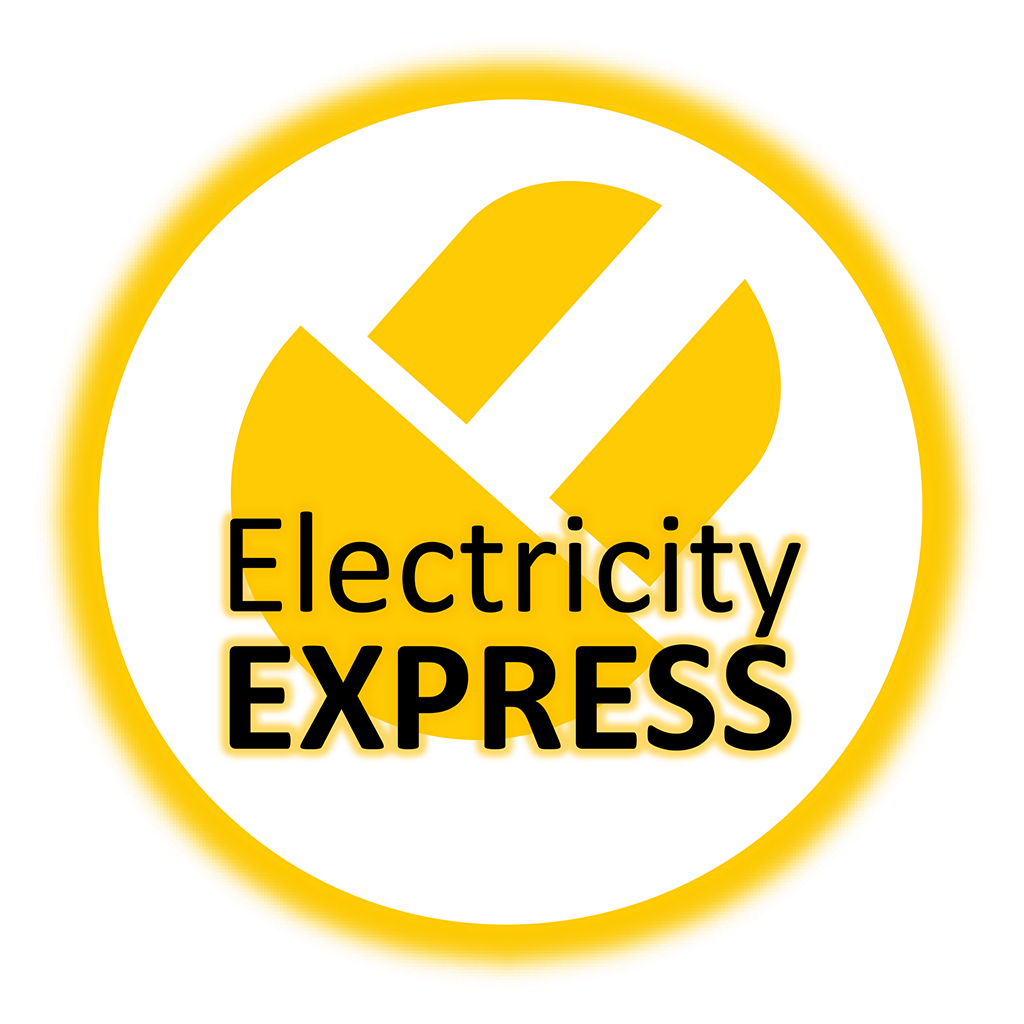Most of us don’t know what a fair electricity rate is, and very few of us know how to shop when we need a new electricity company. How to know if you are paying too much for electricity?

We can explain it all
Electricity is a complex commodity. Since there are a lot of entities involved before it gets to the final user. Electricity prices are not easy to explain, sales agents do not always tell the truth and provide less information than reality.
When buying something, most of us would like to know what is going to the final price, meaning; net cost, surcharges, taxes, etc. all included.
As has been mentioned, there are a lot of electricity sales agents that get paid upon performance (commissions). Therefore, they do not mention all details for a real quote, what the customer is going to pay at the end and the total price.
Paying too much for electricity
Sales agents have the bad habit to quote just for the energy charge.
Considering that the electricity is brought to you by the utility, then, the utility will bill the electricity company (R. E. P. or Retail Electricity Provider) for delivering the electricity to the customer. The customer will pay in one bill to the Utility, REP, and taxes.
Electricity price components. Know if you are paying too much for electricity.

Electricity bill detailed
Energy Charge:
The energy charge is what the REP or electricity provider is charging the customer for the actual electricity he/she is consuming in the house or business. This rate in kWh can be variable in the case that the electricity plan is without a contract.
The REP buys electricity from energy generation companies wholesale and resells it at retail price.
Delivery Charges:
The electricity delivery charges are what the UTILITY charges to the final customer for having the power delivered to the meter. This is how the power lines, towers, maintenance trucks, transformers, etc. are maintained and stay in good shape.
This charge is made by the UTILITY and it must be paid when a customer pays the electricity bill. The electricity company must add that to the bill without any markup. The electricity company receives that and passes it through to the utility.
Sale taxes and surcharges:
First, let’s define surcharge; A surcharge is a fee, charge, or tax added to the cost of a good or service. A surcharge is typically added to an existing tax and may not be included in the stated price of the good or service.
Then, there is nothing we can do about that but complain to our Senate. We all need to pay for those taxes and surcharges.
So, as you can see, we have 3 main components. The percentages are as follows.
- Energy Charge: 52%
- Delivery Charge: 43%
- Tax and Surcharges: 5%
I have heard so many times that my quotes are extremely high. When I ask the customer, what the other rates he/she had, I notice that those rates are not all included. Paying too much for electricity.
It’s not easy to convince someone that he or she is getting false information or that the electricity rate quoted is incomplete.
So, when someone tells me that am paying or getting a quote for 5 cents per kWh and my 9 cents quote is out of proportion, I would like to see the reaction when this customer receives the first bill.
Electricity Express would like to help and tell you the truth about how to buy electricity and how to save on electricity. A lot of gimmicks and hooks are played to engage a customer. We like to gain the customer’s trust with our knowledge and experience. Paying too much for electricity?
Follow our Power Blog for more energy savings ideas.
Check our rates, remember that our rates are all included.
